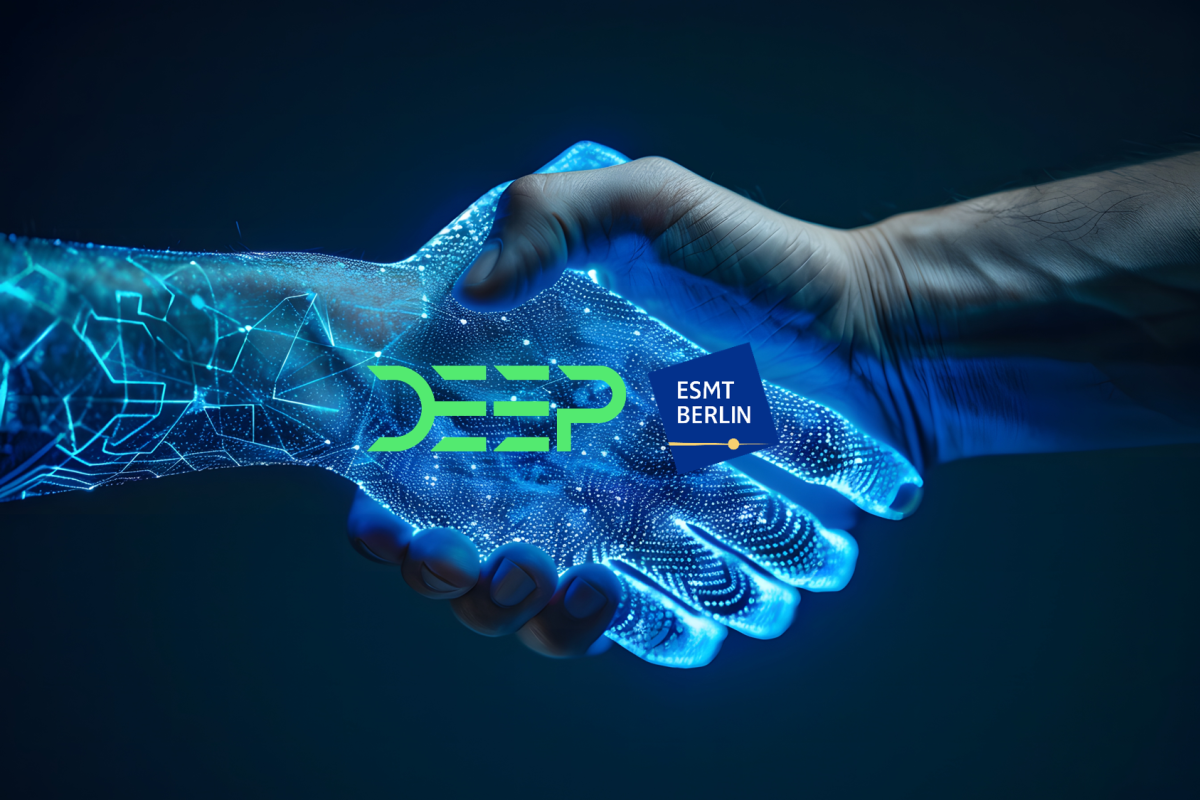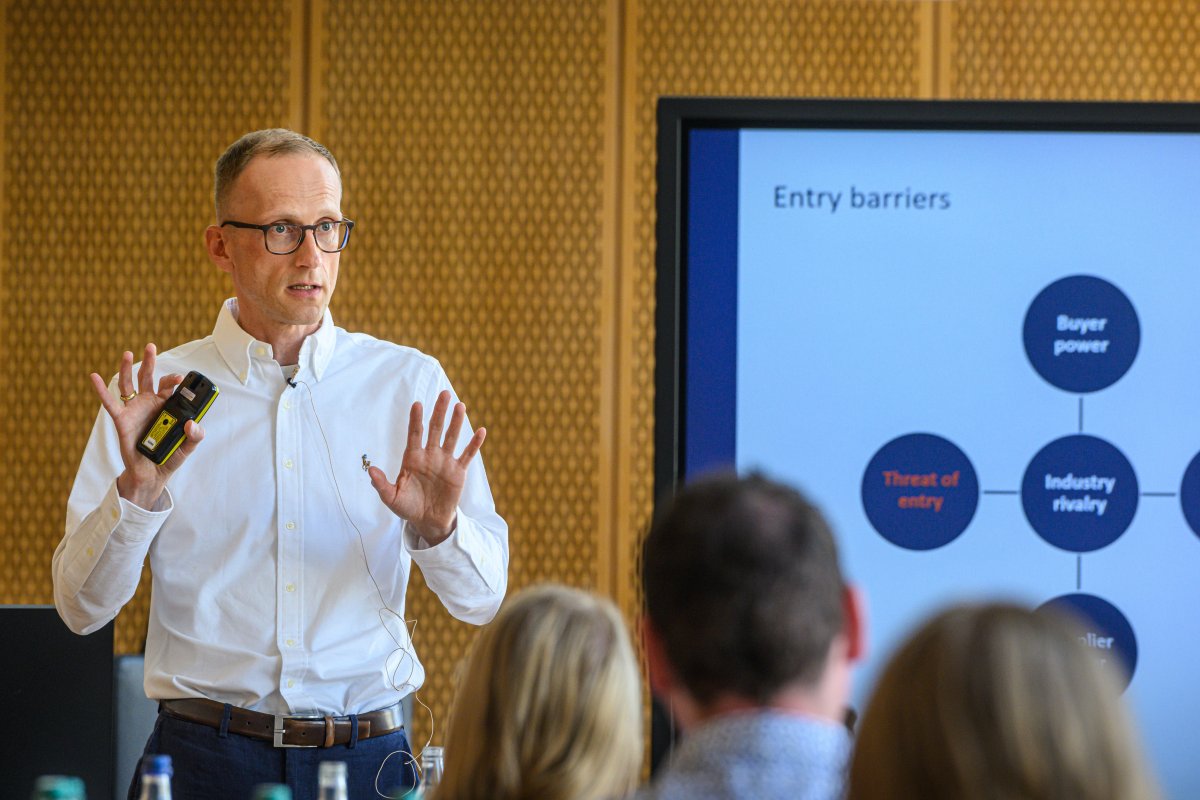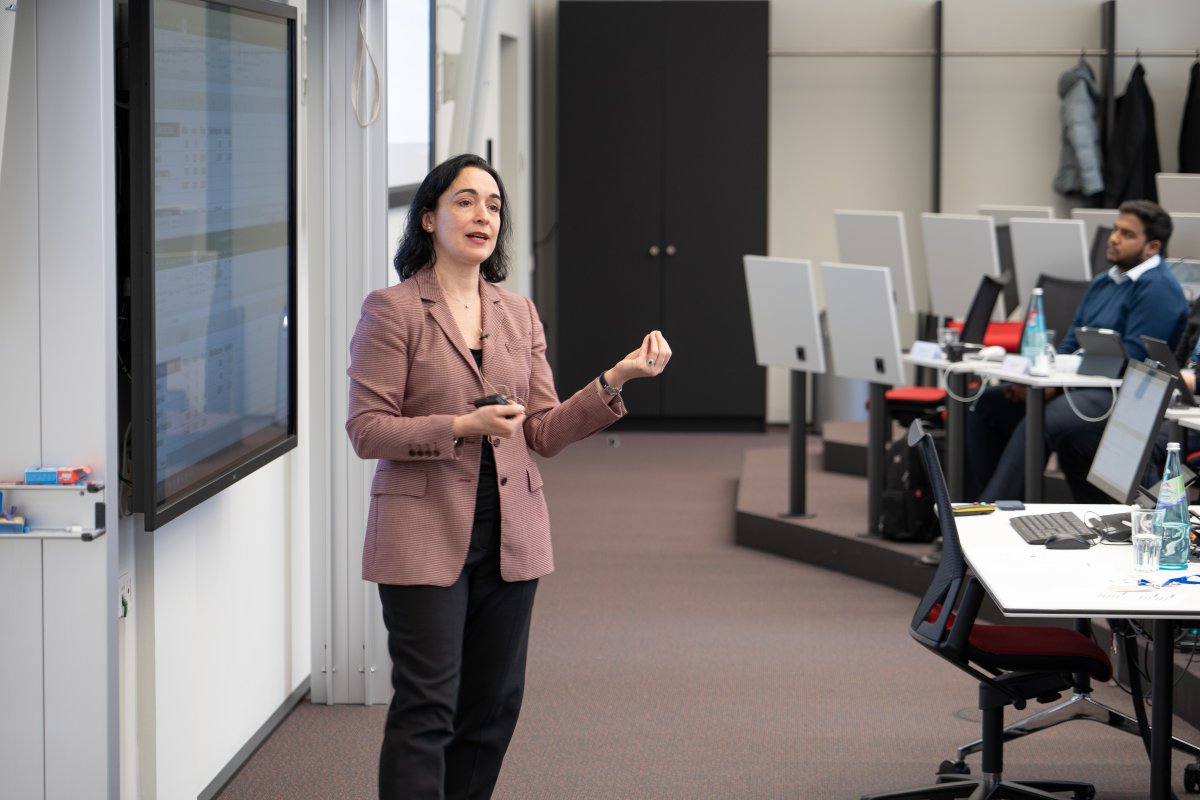Beyond the buzzword: What is deep tech?

What is deep tech?
Deep tech is a term that has been sparking curiosity in recent years. It sounds futuristic, but in many ways, it’s about turning science fiction into reality. At its heart, deep technology refers to innovations rooted in substantial scientific research or advanced engineering. These are not minor product tweaks or app updates. They are breakthroughs that can change industries and tackle society’s most urgent challenges.
While “deep tech” has gained popularity over the past decade, the concept is older than many realise. Early venture capital in the 1950s and 60s backed long-term, high-risk technologies — from semiconductors to biotech — that took years to reach the market. Today, we’re in a new phase: scientific maturity, global collaboration, and urgent needs in climate, healthcare, and security are accelerating the journey from lab to market.
For an accessible introduction to the field, you can listen to ESMT’s deep tech for Dummies podcast, where experts break down complex concepts for curious learners and future innovators.
From research lab to real-world impact
What makes deep tech different from other kinds of innovation is its ambition and complexity. These ventures typically:
-
Work on fundamental scientific or engineering challenges
-
Have long research and development cycles (often 5–10 years)
-
Require significant upfront investment before revenue appears
-
Build strong intellectual property that is hard to replicate

This is why they’re often described as working on “atoms as well as bits.” They might be developing a new quantum processor, designing synthetic biology for sustainable agriculture, or creating fusion energy solutions.
Some well-known examples include:
-
BioNTech (Germany) — pioneers in mRNA vaccines and cancer therapies
-
Isar Aerospace (Germany) — launch vehicles for small and medium satellites
-
Northvolt (Sweden) — sustainable battery gigafactories supplying Europe’s EV market
-
DeepMind (UK) — AI breakthroughs like AlphaFold protein structure prediction
-
SpaceX (US) — reusable rocket systems changing the economics of space travel
Building a career in deep tech
For students and professionals exploring this field, the key question is: what does it take to work in deep tech?
A career here is rarely straightforward. It blends scientific depth with entrepreneurial agility, and it’s not unusual to find physicists working alongside marketers, or engineers collaborating with policy experts.
Common skills and mindsets include:
-
Technical expertise in a relevant scientific or engineering field
-
Commercial literacy to translate research into viable products and services
-
Resilience to navigate years-long R&D cycles and regulatory hurdles
-
Collaboration skills to work across disciplines and cultures
-
Adaptability to respond to new discoveries, market shifts, or funding changes
These roles exist not just in startups, but also in corporate R&D teams, venture capital firms, and public-sector innovation programs. As demand grows, the ability to bridge the gap between research and business is becoming a career-defining advantage.
Many of these abilities, from recognising opportunities to building and leading diverse teams, are at the heart of entrepreneurship. If you are curious about how those principles translate beyond the lab, ESMT’s what is entrepreneurship guide offers a broader perspective.

Europe's opportunity and challenge
Europe is well positioned for deep tech leadership. It has:
-
A rich network of world-class research institutions
-
Significant public funding for high-risk innovation
-
Strong industrial sectors
Yet there are gaps. Compared to the United States, Europe’s venture capital ecosystem is younger, regulatory frameworks can be fragmented, and scaling globally is still a hurdle for many startups. The so-called “valley of death” — the gap between research breakthroughs and commercial success — remains a challenge.
The opportunity lies in closing that gap. This means combining Europe’s scientific excellence with entrepreneurial know-how, investment readiness, and access to global markets. Berlin, Munich, London, and Paris are emerging as hubs where these elements are starting to converge.
How ESMT Berlin and the DEEP institute are moving the needle
In Berlin, ESMT Berlin’s DEEP institute for deep tech innovation was created to address these exact challenges. It’s a venture-building platform that connects research, talent, and capital.
Here’s how DEEP works:
-
DEEP Academy trains scientists and engineers in entrepreneurship and commercialisation skills.
-
DEEP πoneers brings together interdisciplinary teams to develop ventures around breakthrough research.
-
DEEP x Series / CDL-Berlin accelerates startups by linking them to global mentors, investors, and industry leaders.
-
Corporate partnerships open doors to market access, co-development, and strategic customers.
For students in programs like the Master in Innovation & Entrepreneurship, or executives in Executive Education innovation programs, this integration means learning deep tech in the classroom while engaging directly with the ecosystem that brings it to life. Our Full-time MBA and Part-time MBA degrees also offer flexible pathways to gain business expertise while engaging with the deep tech ecosystem.

Berlin as a launchpad for deep tech careers
Berlin offers a combination that’s hard to match:
-
A thriving startup and venture capital scene
-
International diversity that fuels creativity and collaboration
-
Lower living costs than many global capitals
-
Post-study work visas and career pathways for international graduates
-
An MBA in Germany offers advantages few other European destinations can match.
It’s a place where you can study at a globally recognised business school in Germany, join a startup, or even launch your own — all within an environment that values both bold ideas and practical execution. An innovation hub, Berlin is also an ideal city for pursuing an MBA while tapping into one of Europe’s most vibrant business ecosystems.
Go deeper with ESMT
Deep tech is the engine driving the solutions we will rely on in the coming decades — from climate resilience to breakthroughs in healthcare, from secure digital infrastructure to the exploration of space. Its potential is vast, but realising it requires more than scientific excellence; it demands strong connections between research, entrepreneurship, investment, and industry.
Europe has the opportunity to lead in this arena by turning world-class science into globally impactful ventures. In Berlin, the DEEP Institute at ESMT Berlin is part of this effort — fostering the talent, networks, and resources that help transform ideas into innovation with real-world impact.
The next generation of deep tech leaders will shape not only industries, but the way we live, work, and interact with the world. If you’re ready to explore how science and business can come together to create lasting change, learn more about the DEEP institute for deep tech innovation.
DEEP - Institute for deep tech innovation
